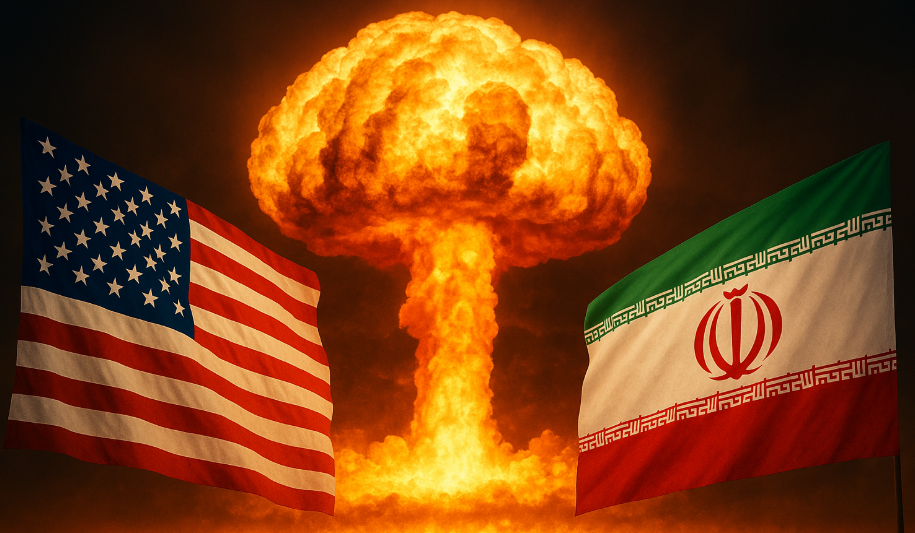
In a shocking escalation, the United States carried out airstrikes on three of Iran's major nuclear sites earlier today. This unprecedented move has stirred significant concern globally, particularly over potential radiation leaks and the safety of nuclear facilities in the volatile Middle East region. However, Iran has now issued a strong statement addressing these concerns and responding to the attacks.
Following the U.S. airstrikes, speculation and anxiety regarding radiation leaks from the attacked sites quickly spread across international media and political circles. The fear of nuclear contamination looming over the region raised alarms in neighboring countries and across the world. In response, Iran's Atomic Energy Organization issued an official statement to calm these fears. According to reports from Iranian state media, the agency confirmed that the country's nuclear facilities suffered no damage and are completely safe.
The Atomic Energy Organization assured the Iranian public and the international community that comprehensive safety checks were immediately conducted following the strikes. No traces of radiation or leaks were detected, and the facilities remain fully secure. The organization emphasized that Iran's nuclear program, which it proudly labels a 'National Industry,' remains intact and unharmed.
Furthermore, the Iranian Atomic Energy Organization strongly condemned the attacks, labeling them a clear violation of international law. It announced that legal proceedings have been initiated to protect Iran's national interests and hold the aggressors accountable. Iran also called upon the international community to condemn these attacks and support Iran's right to peaceful nuclear development under global treaties and norms.
Mohammad Reza Kardan, Deputy Director of Iran's Atomic Energy Organization and head of the National Nuclear Safety System Center, issued a fierce condemnation of the airstrikes carried out by the United States and Israel. Kardan stressed that international norms dictate that active nuclear sites should never be targeted during conflicts, and such actions are unprecedented in modern history. He underlined that this is the first time any nation has attacked another country's operational nuclear facilities.
Kardan also clarified that the Iranian government had already implemented extensive contingency plans and robust safety measures to protect the public's health and safety in such emergencies. Despite the early morning attacks, these safeguards ensured that no radiation leaks occurred at any of the nuclear sites.
Interestingly, Saudi Arabia also released a statement following the attacks, reporting that no signs of nuclear radiation have been detected in the Gulf region. This statement came at a time when global anxieties over potential radiation leaks were running high.
The United States reportedly used its highly advanced B-2 Spirit stealth bombers to carry out these precision strikes. The targeted sites included Fordow, Natanz, and Isfahan—three crucial locations in Iran's nuclear program. U.S. President Donald Trump hailed the operation as a major success, claiming that the Fordow center, considered one of the core components of Iran's nuclear efforts, has been completely destroyed. President Trump declared, "Fordow is now completely obliterated."
However, Iran quickly refuted these claims, insisting that all its nuclear facilities remain undamaged and fully functional. While denying any significant damage, Iran simultaneously issued a stern warning to both the United States and Israel. Iranian officials accused both countries of violating international law and vowed to respond decisively to these provocations.
In conclusion, the U.S. airstrikes on Iran's nuclear sites have added a dangerous new dimension to the already tense Middle Eastern geopolitical situation. While Iran denies any damage to its nuclear infrastructure, the global community remains watchful, hoping that further escalation can be avoided. As legal battles and diplomatic confrontations loom, the world holds its breath, watching what may become a defining conflict in international nuclear policy and global security
Disclaimer:
This article is based on ongoing developments and official statements available at the time of publication. The situation remains fluid, and new information may emerge. The content does not represent any political stance and is intended solely for informational purposes. Readers are advised to follow official government sources for verified updates. We are not responsible for any misinformation or misinterpretation arising from this content.




